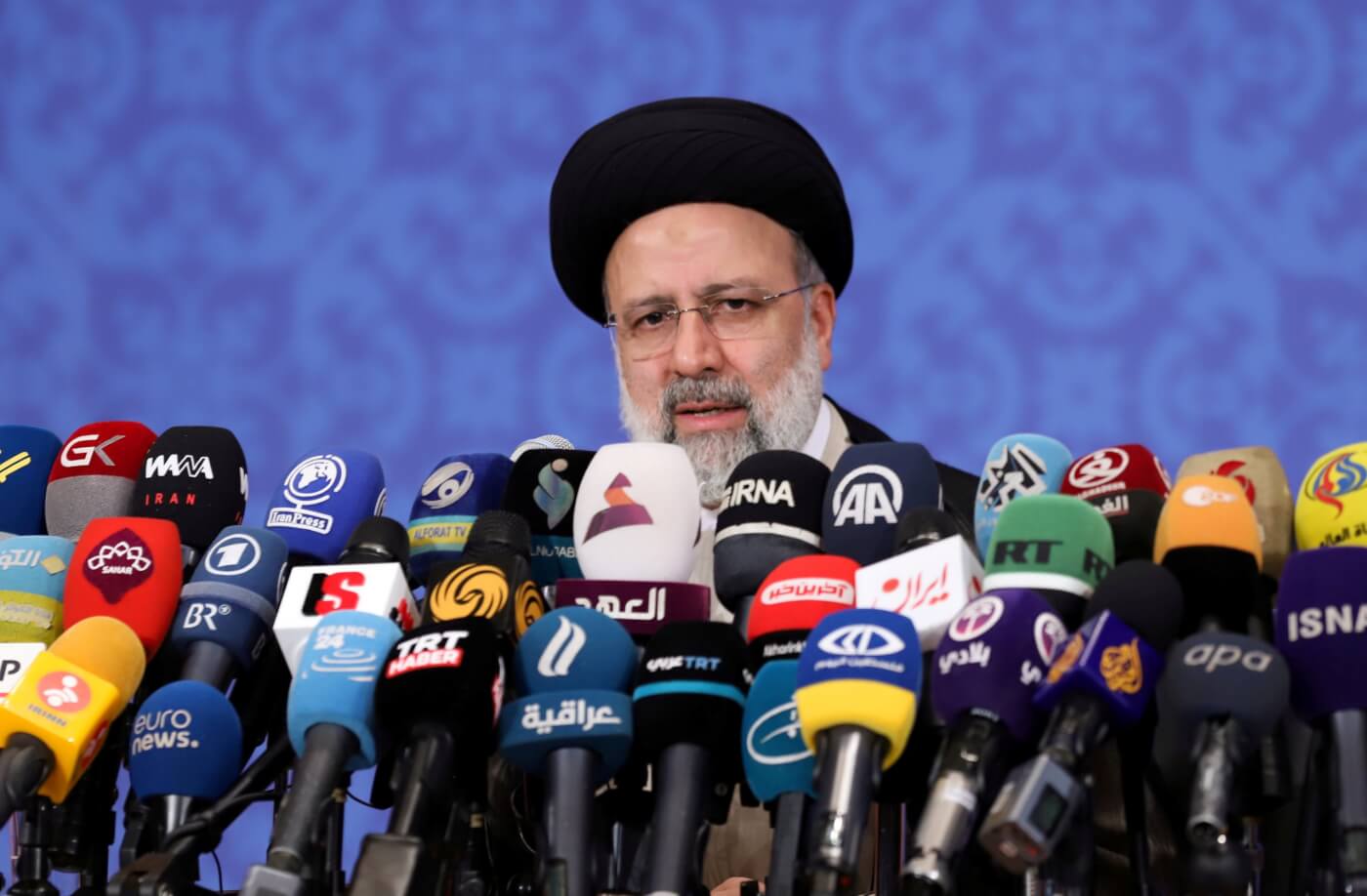On 5 August 2021, ultraconservative hardliner, Ebrahim Raisi will be inaugurated as Iran’s 8th president by supreme leader Ayatollah Ali Khamenei.
60- year-old Raisi will be sworn in before parliament, where he will submit his proposed cabinet. During the ceremony broadcast live on Iranian state television, Khamenei’s decree was read out by his chief of staff:
“Following the people’s choice, I task the wise, indefatigable, experienced and popular Hojatoleslam Ebrahim Raisi as president of the Islamic Republic of Iran.”
Yet while he won 7.9 million votes overall, nearly 62% of the total 28.9 million cast, Iran’s presidential election was strongly skewed in Raisi’s favour. Many of his more moderate rivals were disqualified by Iran’s guardian council who only endorse candidates that show strong support towards Khamenei. And with a voter turnout of 48.8%, the lowest ever in Iranian history, it seems almost ironic to refer to Raisi as the “people’s choice”.
Political views and background
As Iran’s 8th president, Raisi is taking over from politically moderate Hassan Rohani who’s biggest achievement was the 2015 nuclear deal between Iran and six world powers including the United States, the United Kingdom, Russia, France, China, and Germany. Since 2018 when then President Donald Trump withdrew the United States from the deal and imposed crippling sanctions on Iran, the international focus has been on trying to revive it.
Raisi has already vowed to hold talks with the intention of reviving the deal, yet he also stated that he will take measures to rid the Islamic Republic of the “tyrannical” U.S. sanctions. He went on to state that he would “not tie the nation’s standard of living to the will of foreigners”. This type of language is unsurprising for Raisi who is a strong critic of the west, in particular the US. As a loyal follower of supreme leader Khamenei, his hard-line policies are anti-west, pro sex segregation, and he supports the Islamisation of Universities.
Raisi has previously held several senior positions within the Iranian government including the role of Tehran prosecutor during the years 1989 – 1994, being the head of the General Inspection Office in 1994, First Deputy Chief Justice of Iran from 2004 until 2014, Attorney-General of Iran in the years 2014 – 2016, and he has served as Special Clerical Court prosecutor by the order of the Supreme Leader since 2012. He has also been considered a likely successor of Ayatollah Ali Khamenei as Iran’s Supreme Leader.
Human rights concerns
One of Raisi’s most notable roles is that of deputy prosecutor of Tehran in 1988, a role within which he is associated with a number of human rights violations. Nicknamed the ‘Butcher of Tehran’, Ebrahim Raisi was the youngest of four members in the so-called Death Committee for Tehran which was responsible for the execution of political prisoners at the end of the eight-year war with Iraq.
Over a period of five months, approximately 5,000 prisoners from armed opposition and leftist groups were given death sentences as part of a political purge. Raisi continues to deny responsibility for the killings yet stated that they were justified by a fatwa (religious ruling) from Iran’s late supreme leader. Over 150 human rights campaigners have called for an international investigation into the political executions of 1988, including an investigation into Raisi’s role in the matter specifically.
Furthermore, Raisi’s first two years as judiciary chief have been marked by increased political repression and major human rights violations, including the death penalty for juvenile offenders and the continuation of the long-held state policy allowing the detention of dual and foreign nationals. As of June 2021 at least 15 dual nationals and one foreign national have been detained without due process.
Just one day before his inauguration, Iran sentenced German-Iranian Nahid Taghavi to 10 years and eight months in prison. Taghavi is a vocal advocate of human rights in Iran, in particular for women’s rights and freedom of expression.
In addition, people continue to be tried for peaceful activism and are often subjected to arbitrary detention, physical and psychological torture, prolonged solitary confinement, forced confessions, and the denial of medical treatment. Hadi Ghaemi, Executive Director of the Centre for Human Rights in Iran commented:
“Raisi is a pillar of a system that jails, tortures, and kills people for daring to criticize state policies.”
After it was announced that the EU will be sending a senior official to the Iranian inauguration, Lior Haiat, spokesperson of the Israel Ministry of Foreign Affairs, wrote on Twitter that “EU participation gives legitimacy to the Iranian attack and the policy of aggression”. He went on to say, “we strongly recommend the EU to immediately cancel their shameful participation in the inauguration ceremony of the butcher of Tehran”.
With his political history and long list of human rights abuses, it is vital that Ebrahim Raisi is held accountable for his actions even as he continues to lead the future of Iran.

